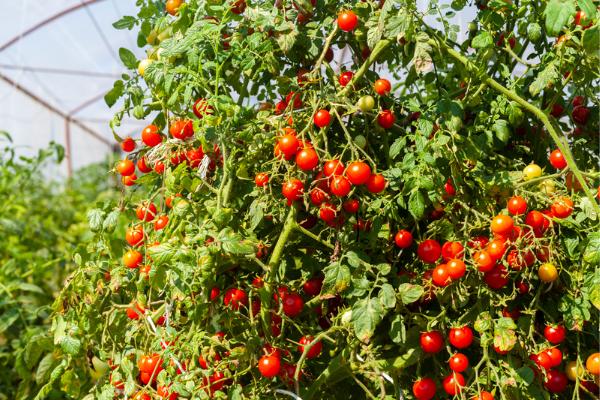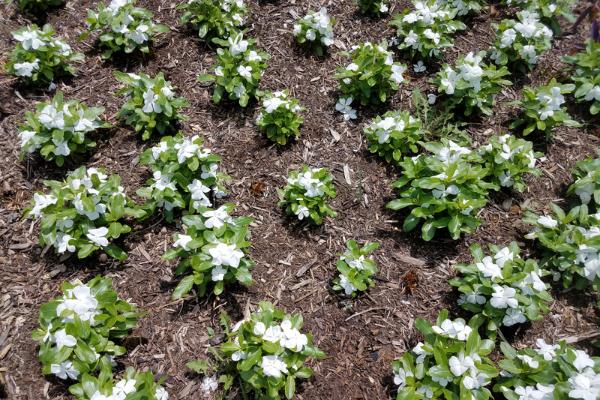Mulch is the foundation of any great landscaping endeavor, defending plants from weeds, nutrifying soil and absorbing moisture. Unfortunately, not all mulch is created equally. In fact, those bags from the hardware store can contain chemicals that harm plants, sterilize soil and otherwise wreak havoc on your outdoor space. If you want to reap the many benefits of mulch, only the best mulch will do.
But what is the best mulch for your yard? At Lumberjacks, we know the answer is 100% organic hardwood because it excels at fortifying and nurturing vegetables, flowers or even trees. Continue reading below to learn which mulch is the best option in specific scenarios.
Ready to purchase high-quality hardwood mulch for your outdoor space? Click the button below to place an order today!
How to Choose the Overall Best Mulch?
The answer to the “best mulch type” will depend on what you’re using it for. While one option may be the best mulch for a vegetable garden, another may be the best mulch for preventing weeds. However, there are a few simple considerations you’ll want to make when determining which mulch is an overall high-quality product worthy of gracing your landscape.
If you want an immediate sense of what you’ll need, three considerations are most important:
- Nutrition – Most nutrients from mulch can help plants, but some plants benefit further from mulch’s effect on soil’s alkalinity and acidity.
- Aesthetic – Not all mulch looks the same, and color greatly impacts your yard’s appearance.
- Defense – You need to know how well your mulch protects plants from competing weeds.
Using these three considerations can help you find high-quality mulch, regardless of your primary usage. To dive deeper into the topic, we look at the best mulch in specific scenarios below.
What’s the Best Mulch for Vegetable Gardens?
If you plan to eat from your garden, you may place a low priority on aesthetics in favor of greater nutritional value and defense. While we recommend certain mulches for specific plants, nutrient-rich organic material that decomposes quickly will help your plants the most. As for defense, mulch must be coarse enough to kill weeds but also fine enough to avoid harming the most delicate plants.
What’s The Best Mulch for Apple Trees?
Apple trees thrive in alkaline soil, and hardwood mulch increases the soil’s alkalinity. Meanwhile, organic hardwood mulch is our specialty! You can also spread hardwood mulch around peach, pear, plum and nectarine trees, which thrive equally well in basic soil, but hungry plants aren’t picky about the nutrients they receive.
What’s The Best Mulch for Tomato Plants?
There are two effective mulches to grow tomatoes: straw and pine needles. A popular option for protecting produce to eat, straw offers extra defense by taking more time to decompose. It’s also good at keeping mud off plants.
Be wary of hay because it’s full of weed seeds. Not only should you stick to straw that vendors have designated as mulch, but you should sift for seeds through any straw mulch you buy.
Pine needles are also effective because, in addition to providing nutrients through decomposition, pine needles increase soil acidity. For tomatoes, soil pH needn’t be too low, but it can benefit from a gentle nudge away from seven.

What Color of Mulch Looks Best?
Many premium mulch vendors, including us, offer three standard colors: red, black and brown (no dye). Actually, we offer chocolate instead of black, but the point is that it’s darker than brown mulch. Most vendors offer only these three colors due to the following explicit use cases.
What Mulch Looks Best with a Grey House?
Typically, more modern, grey houses with metallic embellishments gain the most curb appeal from black or chocolate mulch. Black mulch invites a lot of contrast into the appearance of your home and yard, tricking your eyes into thinking that all colors are brighter.
What Mulch Looks Best with a Tan House?
Red mulch plays best with a warm, mild color palette. Tan houses benefit the most from red mulch. Whether you’re hoping to increase your home’s curb appeal or make a lovely backdrop for photos at an outdoor party, red mulch can be an effective option for a wholesome, rustic look.
What Color of Mulch Is Best for Flower Beds?
While black mulch brightens each flower’s color, purely hardwood mulch that doesn’t even include dye offers enough nutrients and protection to let your flowers speak for themselves. Nothing harmful is in our dye, but we can’t speak for other vendors. The key is to avoid pine, among other softwood mulches, as flowers don’t tend to thrive in acidic environments.

What’s the Best Mulch for Preventing Weeds?
Our premium hardwood mulch keeps weeds from sprouting in two ways: It blocks light from penetrating the soil and smothers any weeds persistent enough to sprout. For an extra kick, use our premium bark mulch. Bark mulch is effective because it offers protection from above, forming a barrier that keeps seeds from entering the soil.
What Mulch Is Safest for Dogs?
If you’re concerned about your furriest family members eating mulch, staying away from inorganic mulch is an excellent place to start, but our premium hardwood mulch is in big enough pieces to keep your pets from swallowing it. Also, some favor cocoa shells as mulch because of their dark color, but chocolate is harmful to cats and dogs alike. Again, we call some of our mulch “chocolate” only in reference to the mulch’s color.
Our Mulch Goes a Long Way
From our yard in Woodstock, IL, we offer organic hardwood mulch in four color-texture combinations. We understand how important purity is to any yard’s foundation, and we know that our mulch doesn’t just protect your existing plants. It provides an opportunity to cultivate new ones, elevating your home’s curb appeal and possibly allowing you to grow some of your own food.
Place An Order for the Best Mulch in Chicagoland Today!
We’d be happy to provide recommendations if you have a yard, garden, or flower bed that seems like the perfect home for our premium mulch. We sell our mulch by the cubic yard. You can use our calculator to find out how much to order.
Editors Note: This blog was first published in February of 2021 and was updated in January of 2024.








